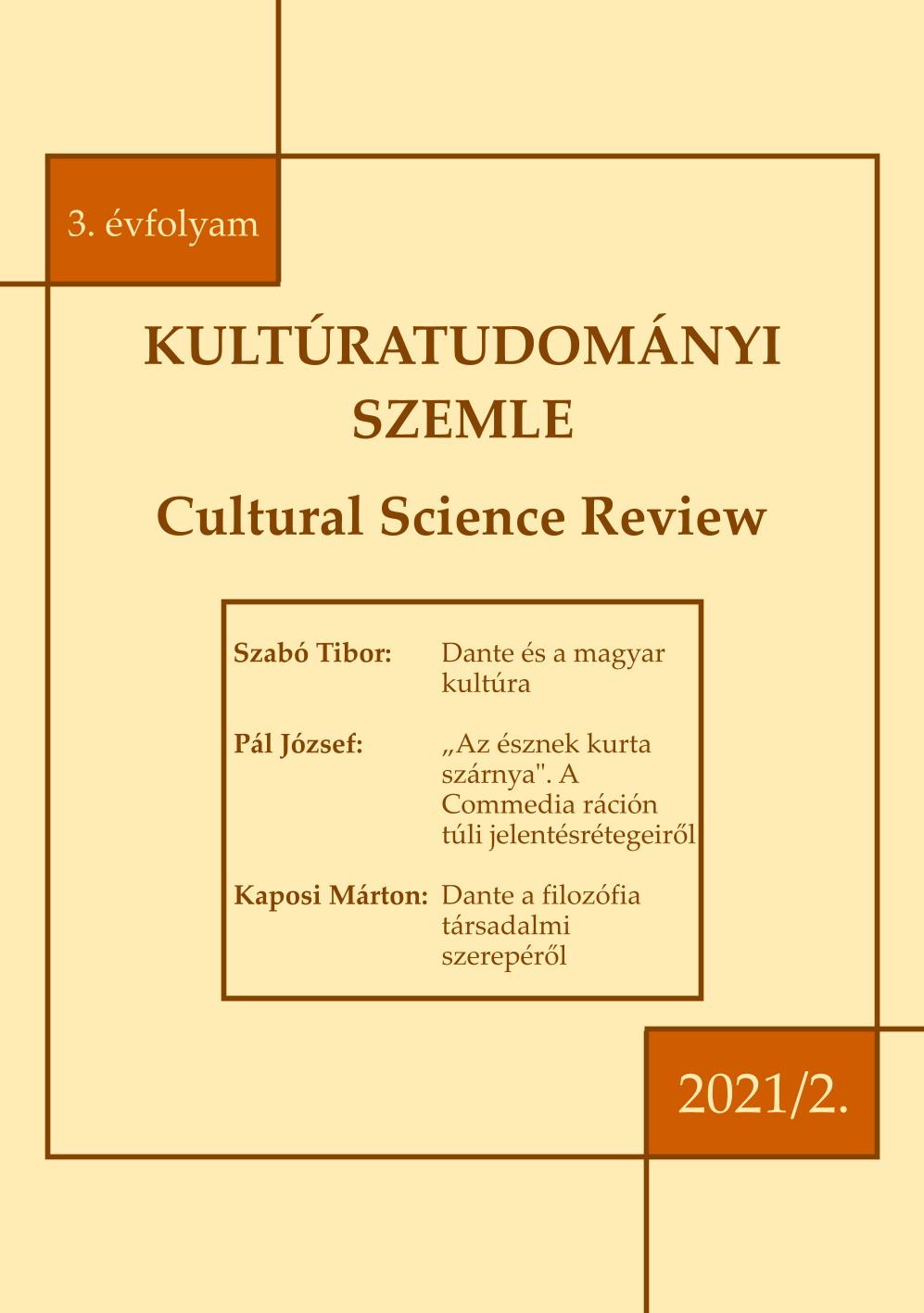Dante a filozófia társadalmi szerepéről
Absztrakt
Dante did not have his own regularly developed philosophical theory, but he was thoroughly familiar with previous great philosophies and based on them he developed a broad and modern philosophical worldview for himself. He relied on this in explaining his scientific and artistic sayings, by changing them in alignment with the particular problem. As the basic aim of his way of living was to help solving social crises and the unfolding of a more conscious and meaningful life for individuals, therefore he primarily and directly expressed ethical guidelines (free will, virtues, innocence, cooperative skill), but built them on a more general philosophical anthropology (genuine nobility, the priority of the intelligent soul, the possibility of humanity), but it also gave this anthropology an even more general, ontological foundation. He treated his philosophical teachings applicable for arranging secular affairs partly with the flexible characteristic of Platonic symposiums, but with the master ‒ disciple characterization typical of Peripatetics, which helps to adapt to problems and to activate the disciple. Dante concretized hermeneutic, which reconstructs great philosophies, in the direction of practice, but at the same time, with his modifications, he also integrated it into the totality of other theoretical knowledge governing human activities.

